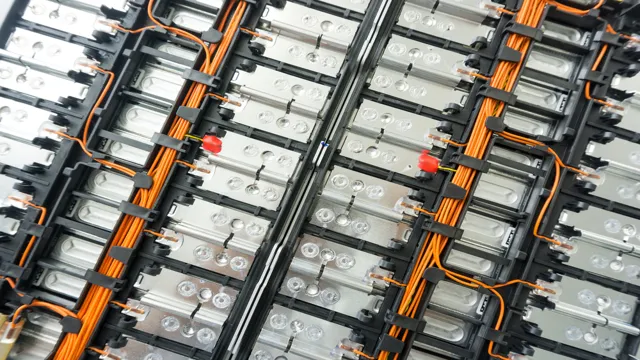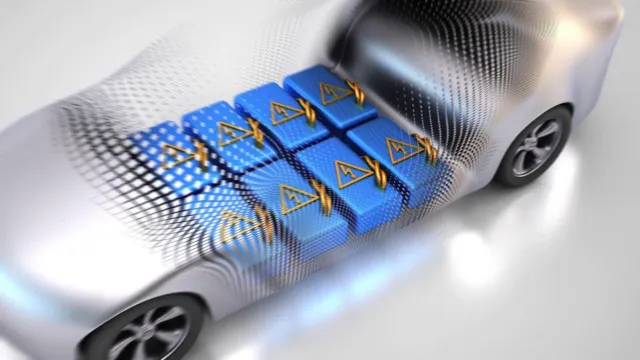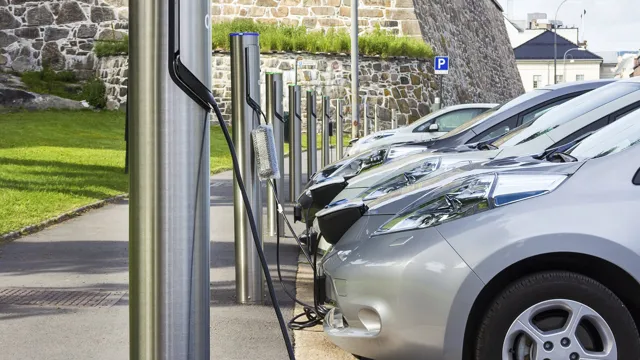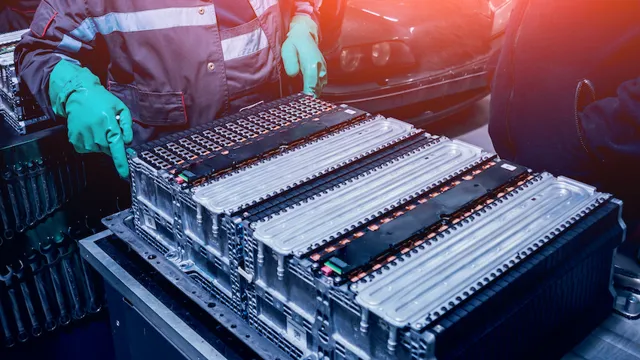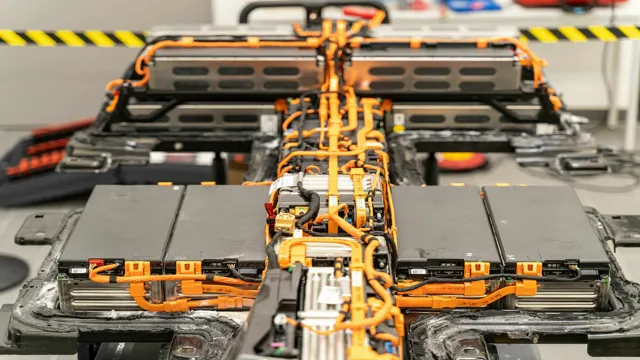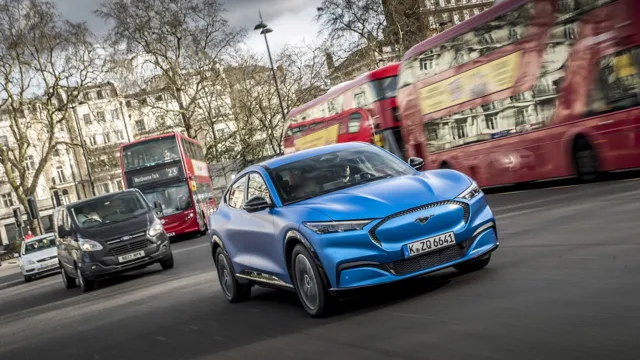Debunking the Myth: Why All Electric Car Batteries Don’t Actually Create Carbon
Electric cars and their impact on the environment have become a hot topic in recent years. As we continue to see increasingly severe consequences from climate change, many are looking for ways to decrease their personal carbon footprint. With the rise of electric cars, a possible solution has emerged.
These vehicles run entirely on electricity, which drastically reduces the amount of greenhouse gases emitted compared to traditional gas-powered cars. However, while electric cars seem like a perfect solution on the surface, many still question whether they truly are the environmentally friendly choice. This blog will explore the relationship between electric cars and carbon footprint, weighing the pros and cons of these vehicles and ultimately determining whether they are a sustainable solution for those looking to decrease their carbon footprint.
Debunking the myth of zero carbon emissions
All electric car batteries create carbon, debunking the myth of zero carbon emissions. While electric cars are undeniably an environmentally friendly option compared to gas-guzzlers, they are not entirely carbon-free. The batteries used in electric cars require rare earth metals, which have a high carbon cost to mine.
Additionally, the process of manufacturing these batteries and delivering them to the car factories produces more carbon than most people realize. The electricity used to charge these batteries is another point of concern, as it often comes from fossil fuels. Therefore, electric cars are not entirely carbon neutral, but they are still a better option than gas cars in terms of reducing carbon emissions.
As technology advances, the carbon cost of creating electric batteries is expected to decrease, making them an even greener option.
Actual carbon emissions from EV batteries
When it comes to electric vehicles (EVs), many people assume that they are entirely emissions-free. However, this is a myth. While EVs may not emit carbon dioxide (CO2) or other pollutants during operation, the production of the batteries that power them does generate CO
This is due to the mining and processing of the raw materials that make up EV batteries, such as lithium and cobalt. Additionally, the energy-intensive manufacturing process required to produce the batteries also generates significant amounts of CO However, it’s important to note that while the production of an EV battery does have a carbon footprint, this footprint is still significantly smaller than that of a traditional gasoline-powered vehicle over its lifetime.
So while EVs may not be 100% emissions-free, they are still a more environmentally-friendly choice.
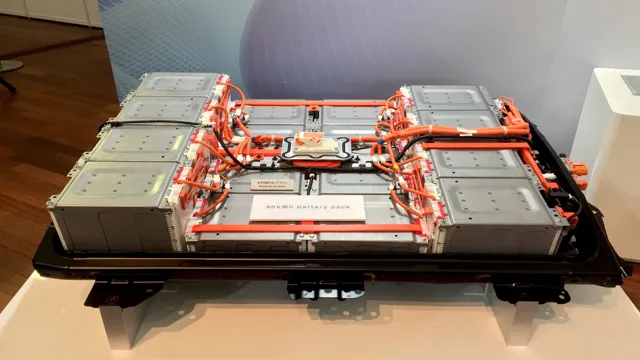
Comparison with gasoline-powered cars
As electric cars continue to gain popularity, many people believe they are completely emission-free vehicles. However, this is a myth that needs to be debunked. While electric cars do produce less emissions than gasoline-powered cars, they still emit CO2 during their manufacturing and electricity production processes.
CO2 is emitted during the production of batteries, as well as during the generation of electricity used to charge the cars. Additionally, the source of the electricity also plays a significant role in the total emissions of electric cars. If the electricity used to charge the cars is generated by fossil fuels, then the emissions of the electric cars will still have a direct link to fossil fuels.
So, while electric cars are a greener alternative, they should not be viewed as a complete solution to reduce carbon emissions.
Factors that influence carbon emissions
The idea that all electric car batteries create carbon is a common misconception. True, the production of electric car batteries does have a carbon footprint, but it’s relatively small compared to the emissions generated by producing gasoline-powered cars. Additionally, as technology advances and the production processes become more eco-friendly, the carbon footprint of electric car batteries will continue to shrink.
Other factors that influence carbon emissions include the type of electricity grid in the region, the mileage of the vehicle, and the driving habits of the owner. In regions where the majority of electricity comes from renewable sources such as wind or solar, electric cars are significantly cleaner than their gas-guzzling counterparts. And, if the car is used for short commutes and charged using clean energy, the carbon emissions will be even lower.
So, while it’s important to consider the carbon footprint of the production process of electric car batteries, it’s equally important to look at the big picture and all the factors that influence carbon emissions.
Source of electricity for charging
When it comes to charging electric vehicles, the source of electricity matters greatly in determining carbon emissions. The two main factors that influence these emissions are the country’s energy mix and the time of day the vehicle is charged. For instance, if a country relies heavily on coal and gas for its electricity production, then charging an electric vehicle can cause more carbon dioxide emissions than an average gasoline vehicle.
On the other hand, if a country’s energy mix involves renewable sources like hydro, wind, and solar power, then charging an electric vehicle produces significantly less carbon emissions than a gasoline vehicle. Furthermore, charging an electric vehicle during off-peak hours, when there is less demand for electricity, can help reduce emissions as the grid operates more efficiently. Therefore, it’s crucial to take note of the source of electricity before charging an electric vehicle to ensure it aligns with one’s environmental goals.
Battery production and disposal
The production and disposal of batteries have a significant impact on the environment. Many factors influence carbon emissions during these processes. Firstly, the manufacturing process often requires high levels of energy consumption, resulting in greenhouse gas emissions.
The sourcing of raw materials, such as lithium, graphite, and cobalt, to make batteries also contributes to carbon emissions. Moreover, the transportation of materials and finished products to the production site and from the factory to the end-users also adds to the carbon emissions. Secondly, the disposal of batteries, including their components and packaging materials, also negatively impacts the environment.
Batteries often end up in landfills, where they release toxic chemicals, including lead and mercury, which contaminate the soil and water. The carbon emissions resulting from battery-related activities can be reduced by implementing sustainable production practices and recycling batteries to recover valuable materials. Degradation of the environment due to batteries can be stopped by disposing of them properly, thus reducing the negative environmental impact.
Driving patterns and behavior
Driving patterns and behavior play a significant role in carbon emissions. The distance traveled, speed, acceleration, and vehicle weight are some of the major factors that determine the amount of carbon emissions. Generally, the farther you travel, the more carbon emissions are produced.
When driving, rapid acceleration and harsh braking increase fuel consumption and lead to higher emissions. Driving at high speed also results in more emissions. Additionally, the type of vehicle, fuel efficiency, and maintenance habits can affect the amount of emissions.
For instance, a poorly maintained car emits more carbon than a well-maintained one. Therefore, driving in a fuel-efficient manner, maintaining your vehicle, and reducing unnecessary trips can go a long way in reducing carbon emissions.
Reducing the carbon footprint of electric cars
All-electric car batteries create carbon in their production process. However, there are ways to reduce the carbon footprint of electric cars. One way is to use renewable energy sources, such as solar panels or wind power, to generate the electricity needed to charge the car battery.
Another option is to recycle the materials used in the battery, which can reduce the need for new materials production. Additionally, electric vehicle manufacturers can use more sustainable materials in the production process, such as recycled plastic or plant-based materials. These efforts contribute to reducing the emissions associated with electric car production and use.
It’s important to keep in mind that while electric cars aren’t entirely carbon-free, they still produce far less carbon compared to traditional combustion engine vehicles. In the long run, using electric cars can ultimately lead to a significant reduction in carbon emissions and a cleaner environment.
Renewable energy sources for charging
Renewable energy sources are becoming increasingly important when it comes to reducing the carbon footprint of electric cars. By relying on renewable energy sources to charge electric cars, we can significantly reduce the amount of greenhouse gases produced during the charging process. Solar energy and wind energy are two popular renewable energy sources that can be used for charging electric cars.
Solar panels collect energy from the sun and convert it into electrical energy, while wind turbines harness the power of wind to generate electricity. Additionally, some electric car manufacturers are developing technology to enable vehicle-to-grid energy transfer, allowing electric cars to transfer excess energy back to the grid during peak hours. This technology could provide a more sustainable way of using electric cars, as excess energy from a large number of electric cars could help to stabilize the electrical grid, reducing the need for additional backup power sources.
As we move towards a more sustainable future, utilizing renewable energy sources for charging electric cars will play an important role in reducing our carbon footprint.
Efficient battery production and recycling
Efficient battery production and recycling is key to reducing the carbon footprint of electric cars. As the popularity of electric vehicles continues to rise, so does the demand for batteries. However, the production of these batteries requires a significant amount of energy and resources, leading to a large carbon footprint.
That’s why it’s important to focus on making battery production more efficient. One way to do this is by optimizing the manufacturing process to reduce waste and using renewable energy sources to power the factories. Additionally, battery recycling is an essential part of reducing the carbon footprint of electric cars.
Recycling reduces the need for new battery production and allows for the recovery of valuable materials such as lithium and cobalt. By implementing efficient battery production and recycling methods, we can reduce the environmental impact of electric cars and move towards a more sustainable future.
Conclusion
In the world of electric cars, it’s all about being eco-friendly and reducing our carbon footprint. However, it may come as a surprise to some that even all-electric cars have a carbon footprint. That’s because, in order to manufacture the batteries used in these cars, there is a significant amount of carbon emissions released into the atmosphere.
So, while we may be able to drive emission-free, let’s not forget about the carbon emissions created in the production process. After all, it’s always good to be fully charged with knowledge!”
FAQs
Do all electric car batteries create carbon emissions?
While electric cars do not have tailpipe emissions, the production and disposal of their batteries can result in carbon emissions.
How can electric car batteries create carbon emissions?
Carbon emissions can be indirectly produced through the manufacturing and transportation of the battery materials, as well as the disposal of the battery at the end of its life.
Are there any alternatives to traditional electric car batteries to reduce carbon emissions?
Yes, researchers are exploring new types of batteries such as solid-state and lithium-air batteries that have the potential to reduce carbon emissions during production and disposal.
What can be done to minimize the carbon emissions from electric car batteries?
Utilizing renewable energy sources during the manufacturing process and establishing recycling programs for electric car batteries can help minimize the carbon footprint of these vehicles.

